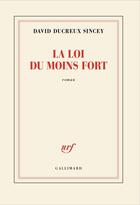-
Nombre de pages : (-)
-
Collection :
(-)
-
Genre :
(-)
-
Thème :
Non attribué
-
Prix littéraire(s) :
(-)
Résumé:
With expert evidence used more and more often in criminal jury cases, evaluation of its admissibility and presentation is being increasingly thrust into the spotlight. However, jury room secrecy has long prevented a rigorous analysis of its complexities. Expert Evidence and Criminal Jury Trials... Voir plus
With expert evidence used more and more often in criminal jury cases, evaluation of its admissibility and presentation is being increasingly thrust into the spotlight. However, jury room secrecy has long prevented a rigorous analysis of its complexities. Expert Evidence and Criminal Jury Trials draws on an unprecedented study carried out in Commonwealth jurisdictions which have recently granted access to jurors, offering a unique exploration of the presentation and comprehension of expert evidence in criminal jury trials and a critical perspective on parallel UK processes. The authors combine empirical research conducted in the courtroom with expert academic analysis, examining, analysing, and comparing the views of not only real jurors, but also courtroom lawyers, judges, and experts across over 50 trials to gauge how complex and sometimes conflicting expert evidence is perceived and understood by all parties. Examples of modern technologies used in expert evidence, including DNA analysis and facial and body-mapping, are considered, and discussion of the challenges they pose covers not only issues of procedure and approach, but also perceptual issues and those of cognitive evaluation. This innovative study aims to facilitate a broader understanding of the use of expert evidence, what problems exist with it, and how such problems influence the communication of information to jurors. While the survey that informs the book relates to criminal trials in three Australian jurisdictions, the legal and psychological issues explored transcend national boundaries, allowing this book to fill a gap in the market for a practical discussion of expert evidence and its use that will be relevant to practitioners in any jurisdiction which utilises an adversarial trial system or juries in criminal trials.
Donner votre avis















